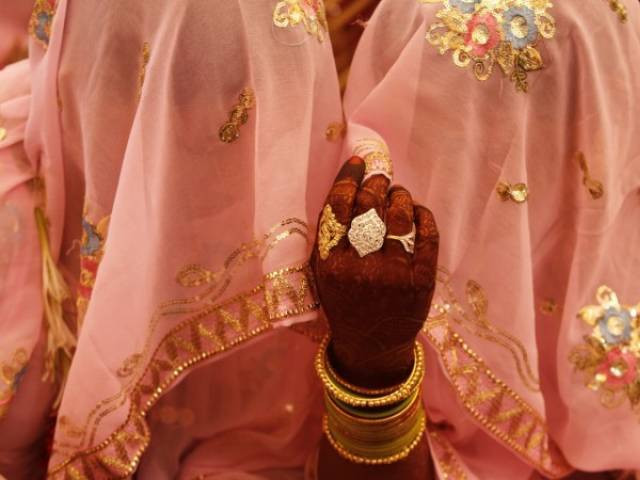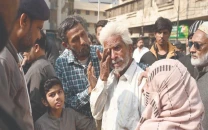Sindh poised to legislate against forced conversions
Proposed bills will make all conversions before 18 years of age illegal

Proposed bills will make all conversions before 18 years of age illegal. PHOTO: REUTERS/FILE
Two important legislations on the cards are the Sindh Minority Rights Commission bill and the Criminal Law (Protection of Minorities) bill. The latter will be the first of its kind in Pakistan, dealing with the abhorrent trend of forced conversions which has taken roots in Sindh over the past few years.
More forced conversions going on than reported, says MP
Earlier this year, the Sindh Assembly took the lead by passing the Sindh Hindu Marriage Bill. Though parochial in nature – the legislation deals only with registration of marriages of Hindu, Buddhist, Jain and Sikh communities – it has served as catalyst for the National Assembly to bring a more comprehensive bill on Hindu marriages.
The Hindu marriage bill pending with the National Assembly has some contentious clauses like dissolution of marriage in case one of the spouses converts to any other religion. Nevertheless, it deals with most issues pertaining to marriage and divorce in the Hindu community.
In a telephonic interview with The Express Tribune, Nand Kumar Goklani, who moved both the new laws, expressed hope that the provincial assembly will pass these legislations during the ongoing budget session or in the one after the budget.
Introduced by Goklani as private member bills, the proposed legislations on April 20 received approbation of the bipartisan standing committee on minorities’ affairs. This approval is needed for adopting bills.
Hindu man beaten for eating in Ramazan
Goklani, who is also the PML-F parliamentary leader in Sindh Assembly, says both bills were on tge assembly’s order of the day on May 3 for a final vote but were deferred since proceedings were abruptly suspended due to the MQM’s protest in the house over the killing of its worker.
Tagged as Criminal Law (Protection of Minorities) Act 2015, the proposed legislation is aimed at putting a check on forced conversions, which comprise forcing a person to adopt another religion under duress, coercion or threat.
Sharing salient features of the much needed law against forced conversions, Goklani said once this law is passed, change of religion will become unlawful until a person is 18 years old.
In cases of alleged forced conversion of an adult person, the court will give the victim 21 days for an independent decision regarding conversion to a new religion before initiating formal trial in court. Once an aggrieved person or any person authorised by the victim or an informer, or a blood relative of a victim moves an application, the local police officer will have to produce the alleged victim to court within 24 hours.
The courts will fix the first date of hearing within seven days of receiving the petition and will be bound to dispose of a forced conversion case within 90 days. During trial, the alleged victim will be temporarily shifted to a shelter home or a child protection institute.
The alleged victim will be given the opportunity to study comparative religion if he or she desires.
Non-Muslims forced to convert in UK’s first Muslim majority prison
On completion of the 21-day period, the alleged victim will record a statement before the court, stating whether he or she changed his or her religion with their own consent and will. Such statements will be recorded in secure locations approved by the court while police will provide security during transport of victim to and from the court.
During the investigation and trial, the courts will adopt special measures, like withholding the location of the victim from everyone except the necessary officials. If the victim is a child, or a person of unsound mind, their real names will not be reported in conventional and social media.
The court could take appropriate measures to provide security to the prosecution witnesses, investing officers, prosecutors, the victim, her or his family and the judges during the investigation and trial, and if necessary, after the trial.
The proposed law also prescribes provision for an in camera trial or any other necessary method according to circumstances. In cases of marriages for forced conversions, once an accused is found guilty, the court will immediately initiate proceedings for a divorce on fast track basis.
Any person found guilty of converting any other person by force, will be liable to minimum imprisonment of five years that could go up to life imprisonment and a fine to be paid to a victim.
Similarly, those providing any logistical support – the ones who will perform/conduct or facilitate a marriage having knowledge that it was being done with aim to coerce a victim change her/his religion – will be liable to a minimum three years imprisonment. The law provides a minimum five years imprisonment and a fine to all the abettors in the crime.
Published in The Express Tribune, June 13th, 2016.



















COMMENTS
Comments are moderated and generally will be posted if they are on-topic and not abusive.
For more information, please see our Comments FAQ